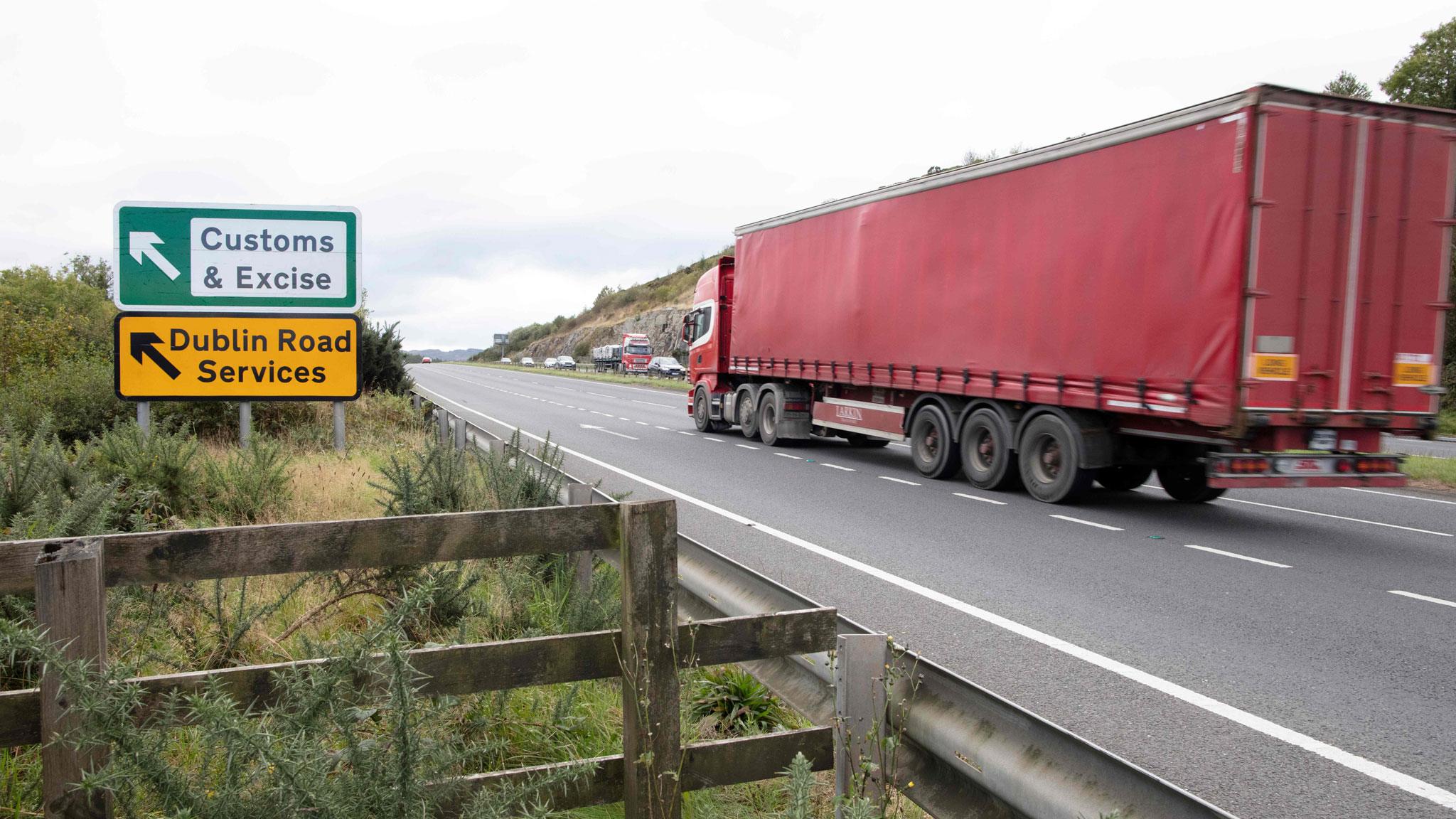Brexit: UK offer 'a step forward' says Simon Coveney
- Published
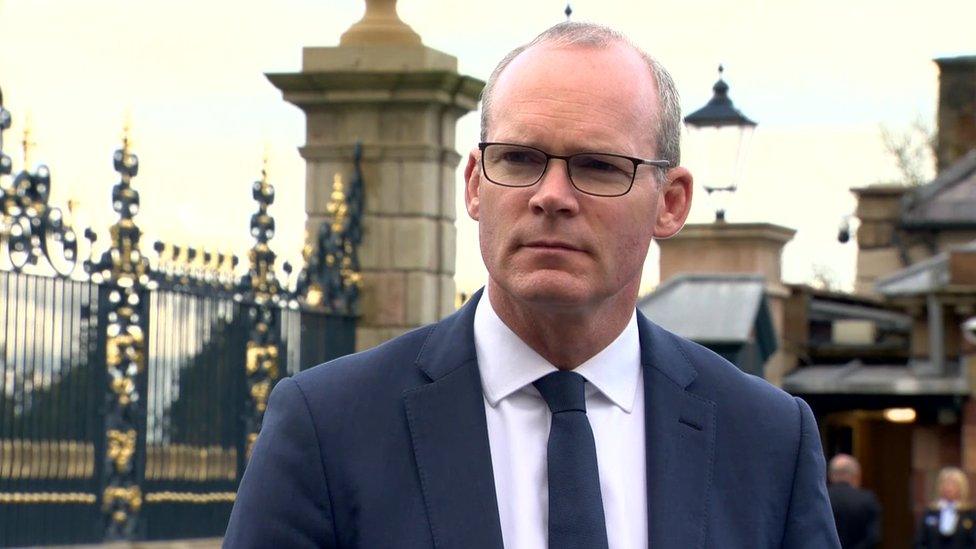
Simon Coveney is the Irish tánaiste (deputy PM) and minister for foreign affairs
The UK's latest Brexit proposals are a "step forward" but further change is needed to avoid customs checks, the Irish deputy prime minister has said.
Simon Coveney said he welcomed parts of the plan but added he was "not going to pretend we have a solution" as yet.
He said Mr Johnson "has accepted" for the first time that there must be "full regulatory alignment for all goods" crossing the Irish border.
He added Ireland still had to "assume the worst" and prepare for no deal.
The UK prime minister outlined proposals on Wednesday that would see Northern Ireland stay in the European single market for goods, subject to approval every four years by the Northern Ireland Assembly.
Under the plan, Northern Ireland would leave the EU customs union along with the rest of the UK - resulting in new customs checks.
The Irish government has been accused of "intransigence" by the Democratic Unionist Party (DUP), which has backed Mr Johnson's plan.
Speaking at Hillsborough Castle on Friday evening, DUP MP Nigel Dodds said some of Mr Coveney's "tone and rhetoric" was "deeply unfortunate".
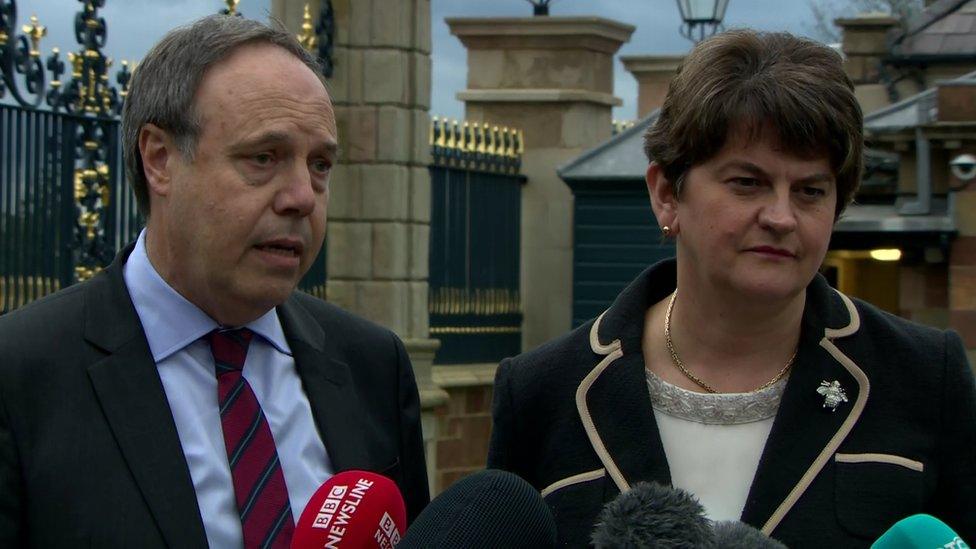
Speaking at Hillsborough Castle, DUP MP Nigel Dodds criticised Mr Coveney's "tone and rhetoric"
"Saying the backstop was only way forward, making it clear that there would be no alternative, he let the cat out of bag."
Mr Dodds said that the Irish government "cannot trap Northern Ireland in arrangements which will do damage to economic integrity of the United Kingdom and our constitutional position".
However, the tánaiste rejected a suggestion that he was trying to "ride roughshod" over unionism, arguing that the DUP was the only party in Northern Ireland that believes Mr Johnson's plan will work "in its current form".
'Welcome progress'
Speaking earlier on Friday, the tánaiste (Irish deputy PM) acknowledged there had been some movement in Mr Johnson's position on the single market.
"For the first time, the British government under Boris Johnson has now accepted that there needs to be full regulatory alignment for all goods to prevent the need for border infrastructure," Mr Coveney told the Today with Sean O'Rourke programme.
"I think that is very welcome progress and it's important to recognise that because progress hasn't been easy to find in recent weeks."
However, he said the UK plan would create "two separate customs unions" on the island of Ireland and did not explain how border checks, and the associated security risk, could be avoided.
'Emotive'
He explained that viewing the Irish border solely in terms of "trade facilitation" missed the point of the Brexit negotiations.
"The border question is about identity and emotion and history and trauma linked to partition," he said.
"That it why it's so emotive, politically, and why we have to be responsible in terms of how we solve it."
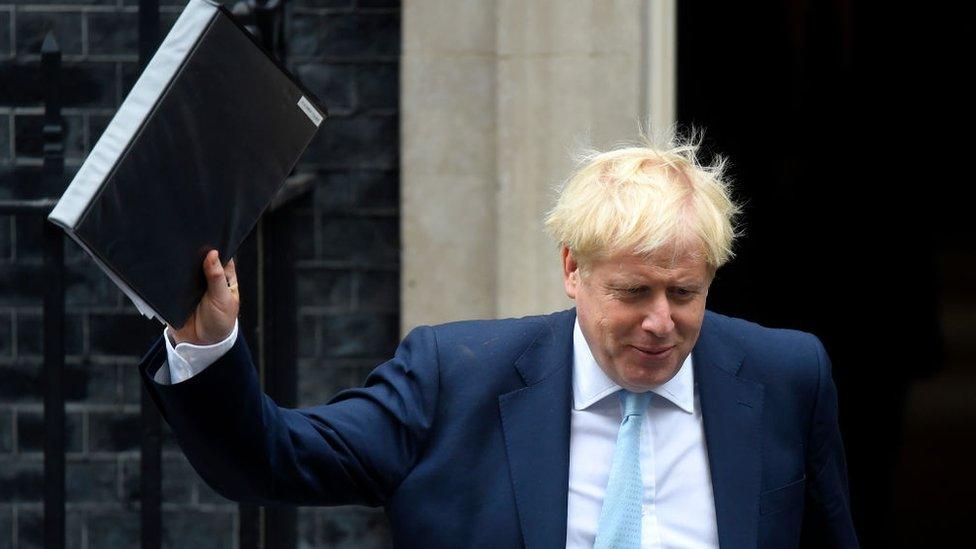
Mr Coveney believes Boris Johnson "wants to get a deal this month"
Mr Coveney also met Northern Ireland Secretary of State Julian Smith at Hillsborough Castle on Friday afternoon.
Speaking afterwards, he said a deal between the UK and EU this month "is possible".
"I believe that the British prime minister wants to get a deal this month, we will certainly work to that time frame if the British position evolves," he said.
'So unpredictable'
Mr Coveney also said the proposal to make single market alignment subject to Northern Ireland Assembly votes would essentially give a veto to "any one party" at Stormont.
The Northern Ireland Assembly is currently suspended and has not functioned for almost three years.
Mr Coveney said progress was needed in the UK-EU talks within the next 10 days, referring to legal deadlines which are approaching in the UK.
But he said he was not confident that legislation passed by Westminster last month, requiring the UK prime minister to ask the EU for an extension to Brexit if there is no new agreement by 19 October, would prevent a no-deal exit.
"I think that British politics is so unpredictable right now that we just can't rely even on the law in Britain in this context, because we have a prime minister who says he is not going to apply for an extension, even though the law may require him to do so.
"We simply don't know how that will unfold."
- Published4 October 2019
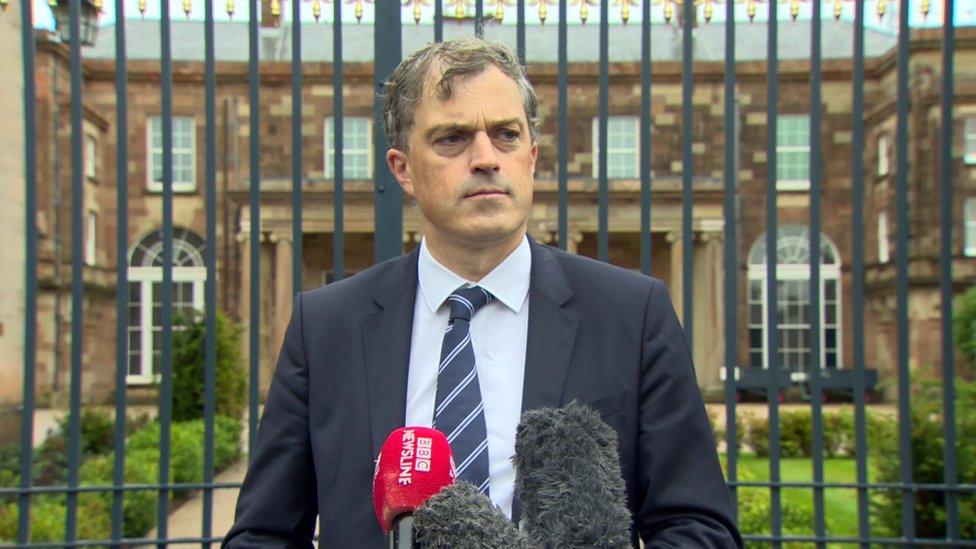
- Published3 October 2019
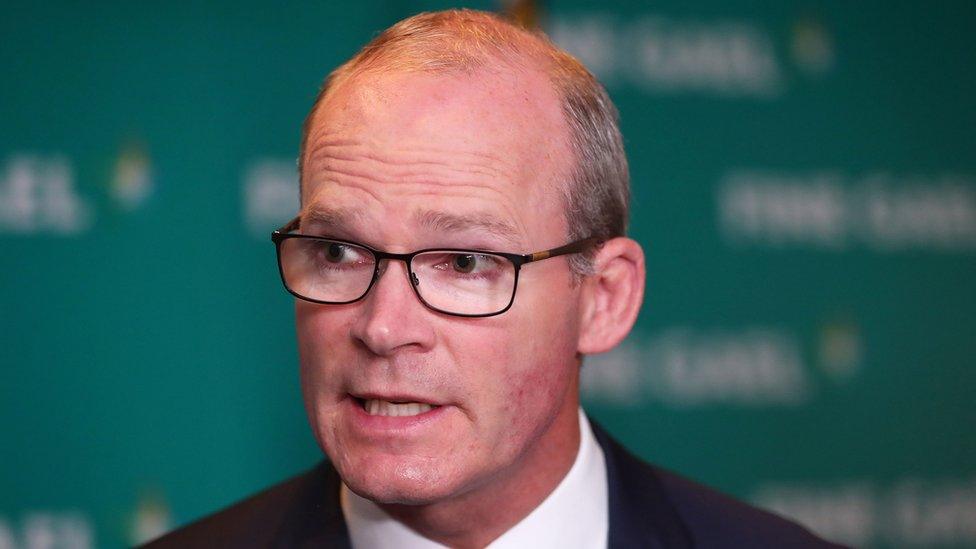
- Published2 October 2019
